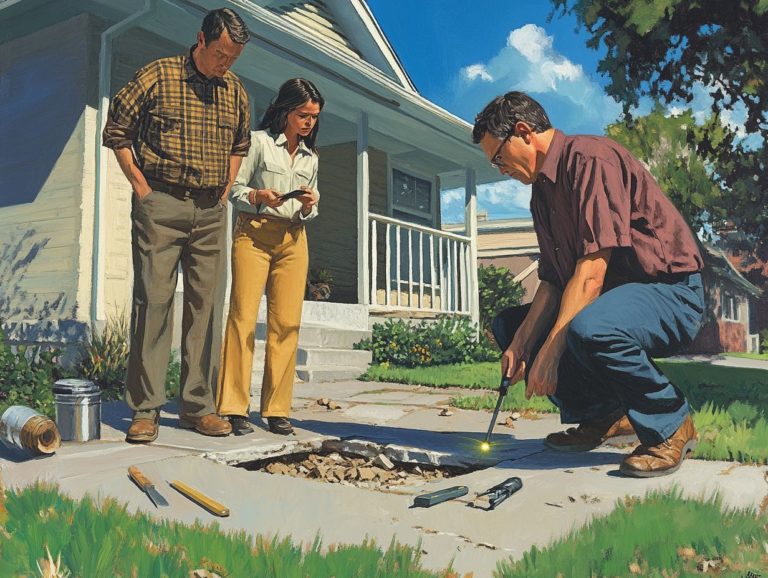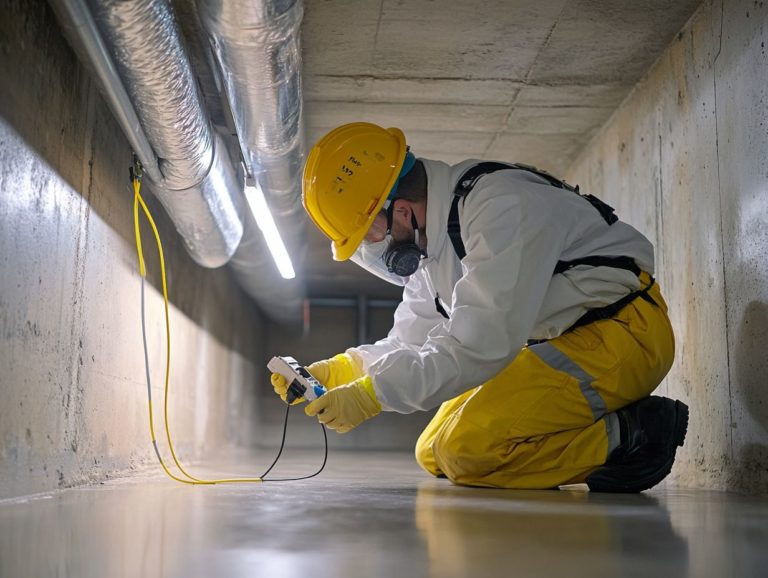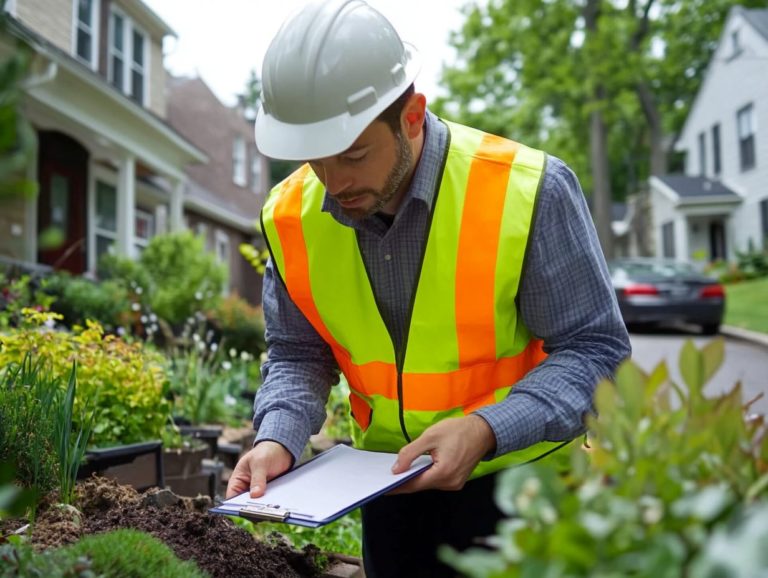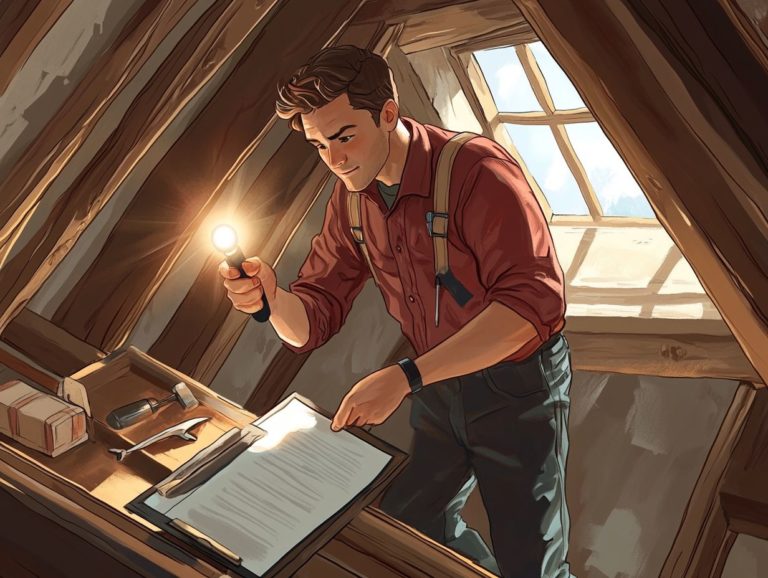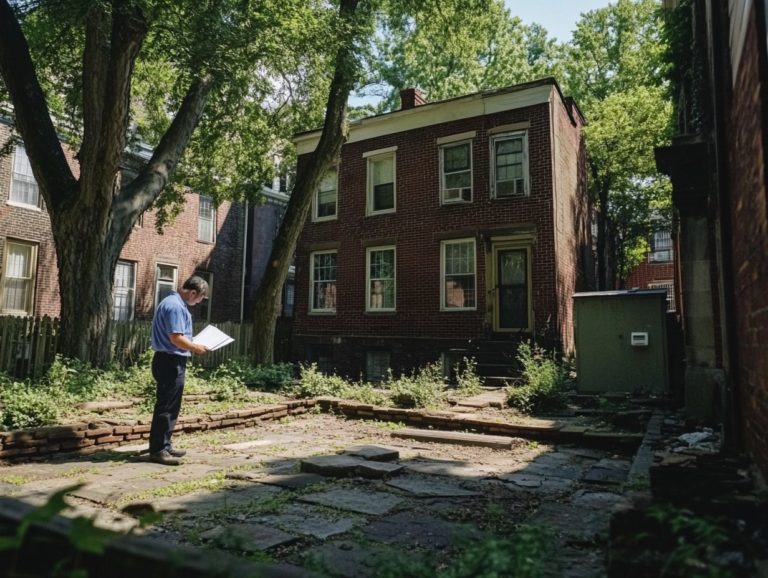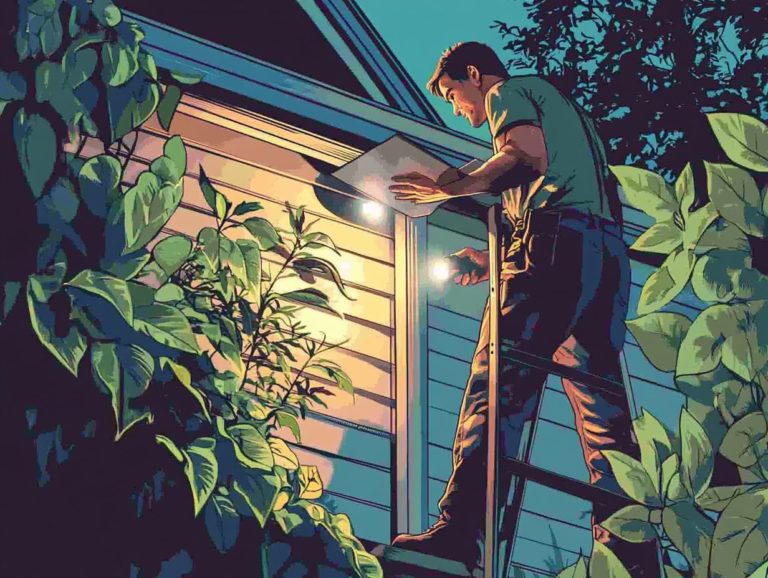The Importance of Roof Inspections
A well-maintained roof is essential for safeguarding your home and extending its lifespan.
Regular roof inspections are key to spotting potential issues before they snowball into expensive repairs. This article delves into what a roof inspection involves, emphasizes the importance of scheduling them consistently, and highlights the signs that suggest your roof may require attention.
It also walks you through the inspection process and provides tips for selecting a qualified inspector, ensuring your home remains safe and sound for years to come.
Contents
Key Takeaways:
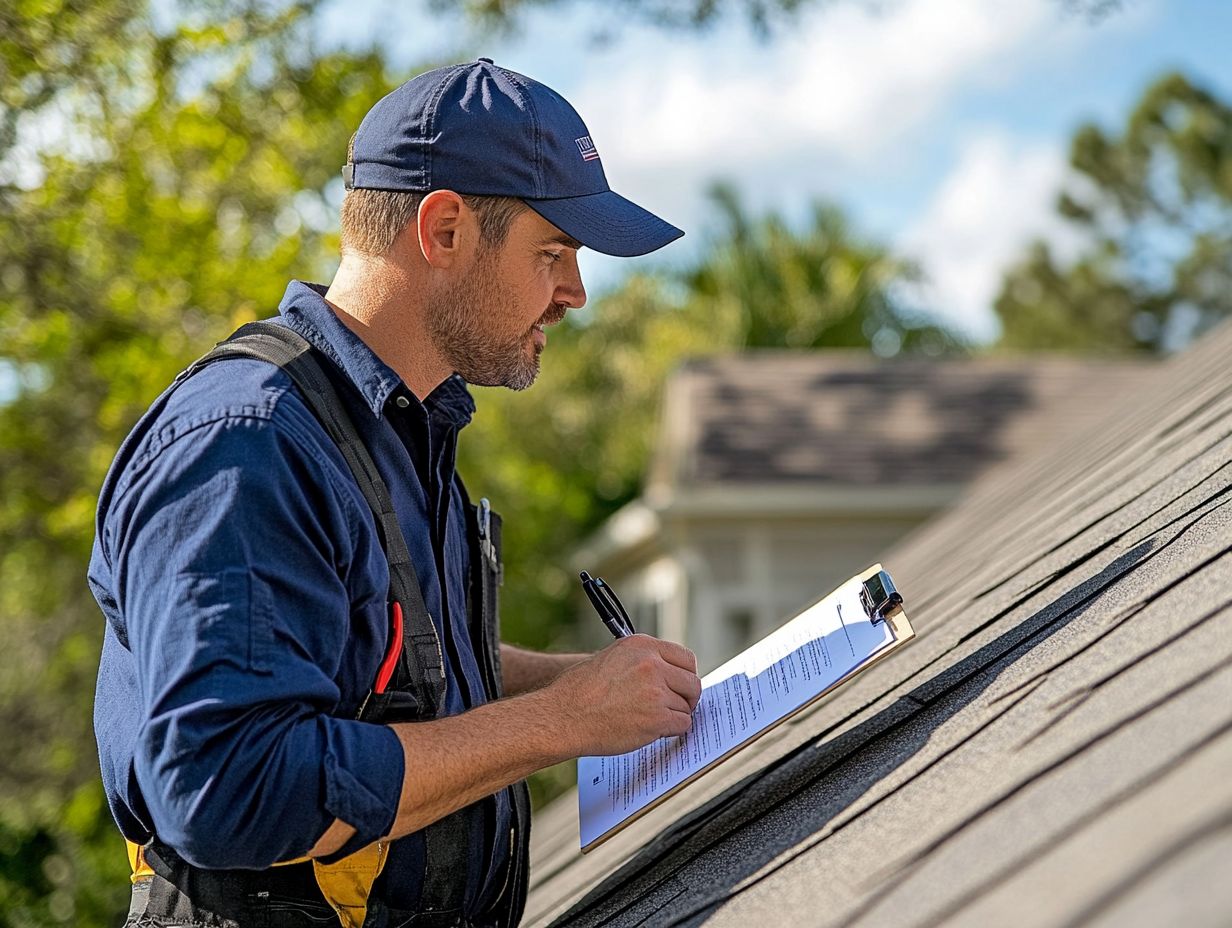
Regular roof inspections prevent damage and extend your roof’s lifespan. This saves you time and money in the long run.
Insurance and warranty requirements often mandate regular roof inspections, highlighting the importance of structural inspections in homes for maintaining coverage and protecting your investment.
Look out for visual signs of damage or wear on your roof, and schedule an inspection if you notice any issues to catch them before they become bigger problems.
Make roof inspections a priority to protect your home today!
Understanding Roof Inspections
Understanding roof inspections is essential for homeowners who want to preserve the longevity and integrity of their roofs, as highlighted in understanding the importance of home inspections.
When you schedule a roof inspection, a licensed inspector conducts a comprehensive assessment, examining various roofing components, including the materials used. This process helps identify any existing damage or potential issues that could result in costly repairs down the line.
It also helps you make informed financial decisions about home insurance policies and repair costs, ultimately safeguarding your property value.
What is a Roof Inspection?
A roof inspection is a thorough evaluation of your roof’s condition, conducted by a licensed inspector to pinpoint various issues such as leaks, storm damage, and wear on roofing materials.
Throughout this process, the inspector meticulously examines multiple components, including roofing materials like shingles or tiles, assessing their integrity and signs of wear. Roof flashing, a material that directs water away from areas of your roof that are prone to leaks, receives close attention to ensure it effectively prevents leaks.
The inspector checks your gutters for any blockages or damage, as clogged or broken gutters can lead to significant drainage issues and potential water damage.
By scheduling regular roof inspections, you extend the lifespan of your roofing system and protect yourself from costly repairs by identifying minor issues before they spiral out of control.
Reasons for Regular Roof Inspections
Don’t wait until it’s too late; regular roof inspections are essential for homeowners! They allow you to spot potential issues early on, which helps prevent significant damage and extend the lifespan of your roof. For more guidance, check out the importance of a thorough home inspection.
By proactively assessing its condition, you ensure the structural integrity of your home and maintain its overall value, all while making informed decisions regarding your insurance.
Preventing Damage and Extending Lifespan
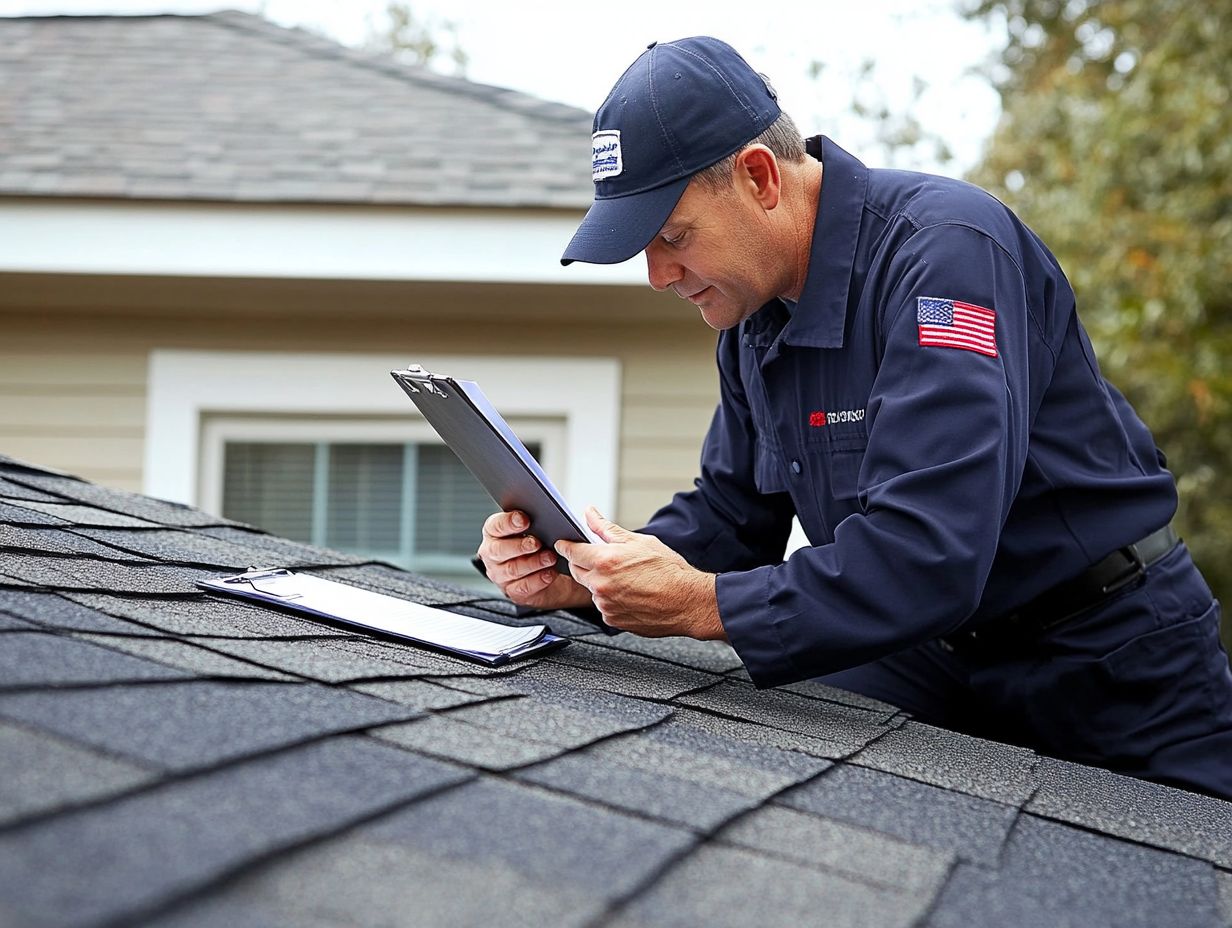
Preventing damage and extending the lifespan of your roof starts with routine maintenance and timely inspections, enabling you to tackle issues before they escalate into costly repairs.
Regularly cleaning your roof to remove leaves, twigs, and other debris can significantly mitigate the risk of water pooling and subsequent leaks. Ensuring your gutters are free-flowing is equally crucial; this facilitates proper drainage and helps prevent potential water damage.
It s also vital to keep an eye on roof components like flashing and shingles for any signs of wear or damage. By committing to these straightforward yet effective maintenance tasks, you enhance the integrity and longevity of your roof, safeguarding your investment and providing you with peace of mind.
Insurance and Warranty Requirements
Understanding insurance and warranty requirements is essential for you as a homeowner. Many insurance policies require regular roof inspections to maintain coverage and facilitate claims in the event of roof damage.
These inspections are crucial for protecting your investment, helping you identify potential issues before they escalate into costly repairs. If you neglect these inspection mandates, you could face significant repercussions, such as denial of claims or even policy cancellation, leaving you exposed during critical times.
Thorough inspection reports become vital documents when filing insurance claims, reinforcing the validity of the reported damage and influencing your coverage options. By staying on top of inspections, you not only secure peace of mind but also enhance your ability to navigate the complexities of your insurance policies effectively.
Signs That Your Roof Needs Inspection
Spotting roof problems early can save you a lot of money!
Key visual indicators to watch for include:
- Roof leaks
- Noticeable storm damage
- Problems with gutters or moisture buildup
Each of these issues can jeopardize the roof’s integrity. Don’t wait pay attention!
Visual Indicators of Damage or Wear
Visual indicators of damage or wear on your roof may include curling shingles, missing flashing, or water stains on your ceiling each a clear signal that an immediate inspection is necessary.
As a homeowner, it s crucial to periodically assess these elements to prevent further issues. Start with the shingles: check for any that are cracked, buckling, or completely missing, as these can seriously compromise the integrity of your roof.
Next, take a look at the gutters. Signs of debris buildup or sagging could indicate potential drainage problems that need attention. And don t overlook the flashing around chimneys and vents; if it s rusted or pulling away, this may invite leaks into your home.
By paying attention to these visual cues, you can tackle minor problems before they escalate into costly repairs.
What to Expect During a Roof Inspection
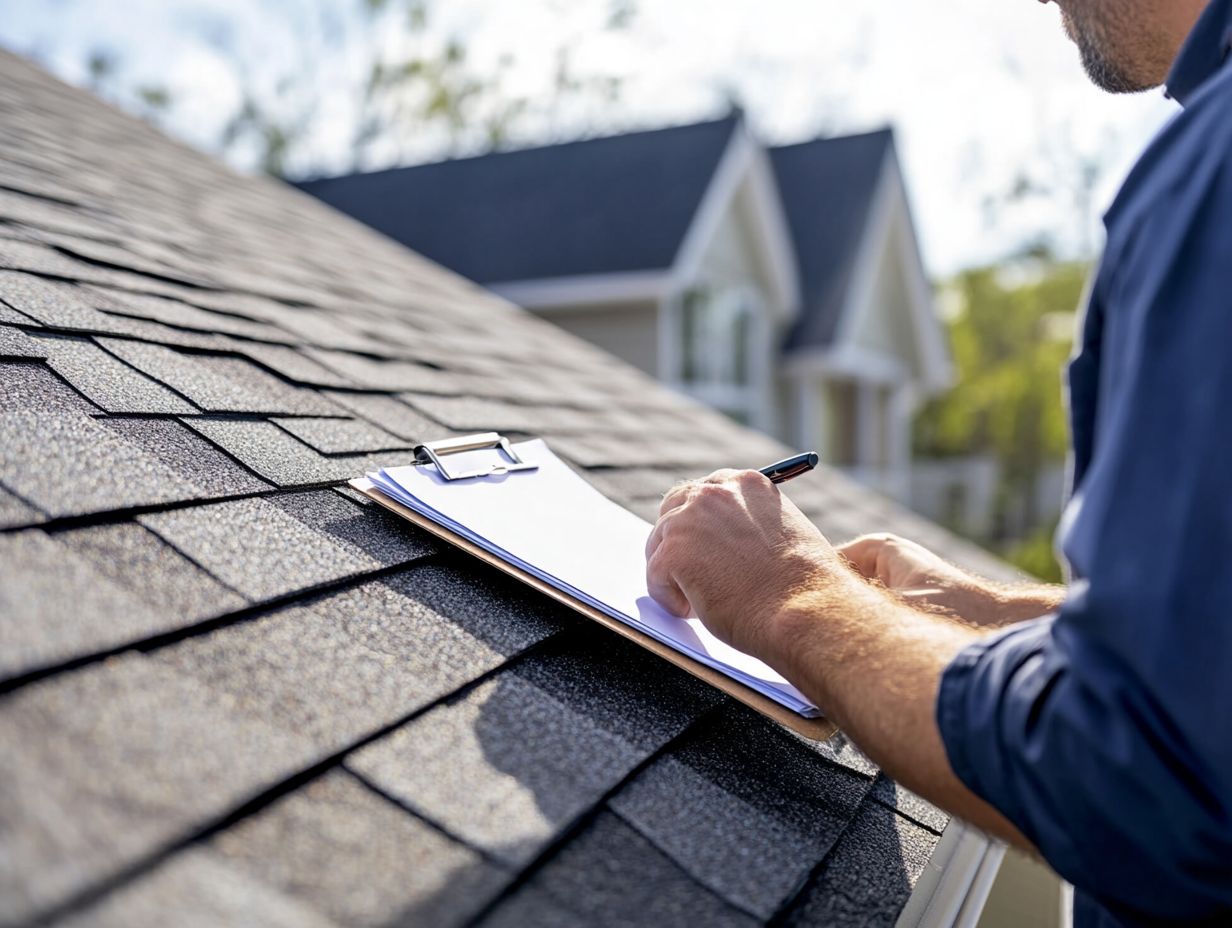
During a roof inspection, you can anticipate a careful check-up carried out by a licensed inspector. This process includes a thorough look at your roofing system, as well as an interior examination for any signs of damage.
This careful check-up ensures that your roof receives the comprehensive maintenance it deserves.
The Inspection Process and Report
The inspection process is a careful endeavor where a licensed inspector evaluates your roof’s condition, identifies issues, and compiles a comprehensive report that details findings along with recommended repairs or maintenance actions, including the importance of window inspections in homes.
This thorough procedure begins with an initial assessment, during which the inspector visually examines your roof for any visible signs of wear or damage. After this preliminary look, an extensive examination is carried out, often employing specialized tools to gauge the integrity of the materials and pinpoint any potential leaks or weaknesses.
Once all the data has been gathered, the inspector interprets the findings and creates a detailed report. This document proves invaluable for homeowners and property managers, guiding future maintenance decisions, prioritizing urgent repairs, and aiding in budgeting for long-term roof management.
Choosing a Qualified Roof Inspector
Selecting a qualified roof inspector is crucial for homeowners who desire peace of mind regarding the thorough evaluation and maintenance of their roof, as highlighted in the understanding the necessity of home inspections.
Experienced and licensed inspectors hold the necessary certifications to accurately identify potential issues and recommend the most appropriate actions.
Take charge of your roof today! A qualified inspector can make all the difference in protecting your home.
Certifications and Experience to Look For
When choosing a roof inspector, prioritize their qualifications. Look for necessary licenses and certifications.
Check for credentials from respected organizations like the National Roofing Contractors Association (NRCA) and the International Association of Certified Home Inspectors (InterNACHI). These show the inspector understands roofing techniques and meets industry standards.
Experience matters! Seasoned inspectors recognize problems that newer inspectors may overlook.
By selecting a qualified expert, homeowners can feel confident that their roof inspection will be comprehensive and precise.
Frequently Asked Questions
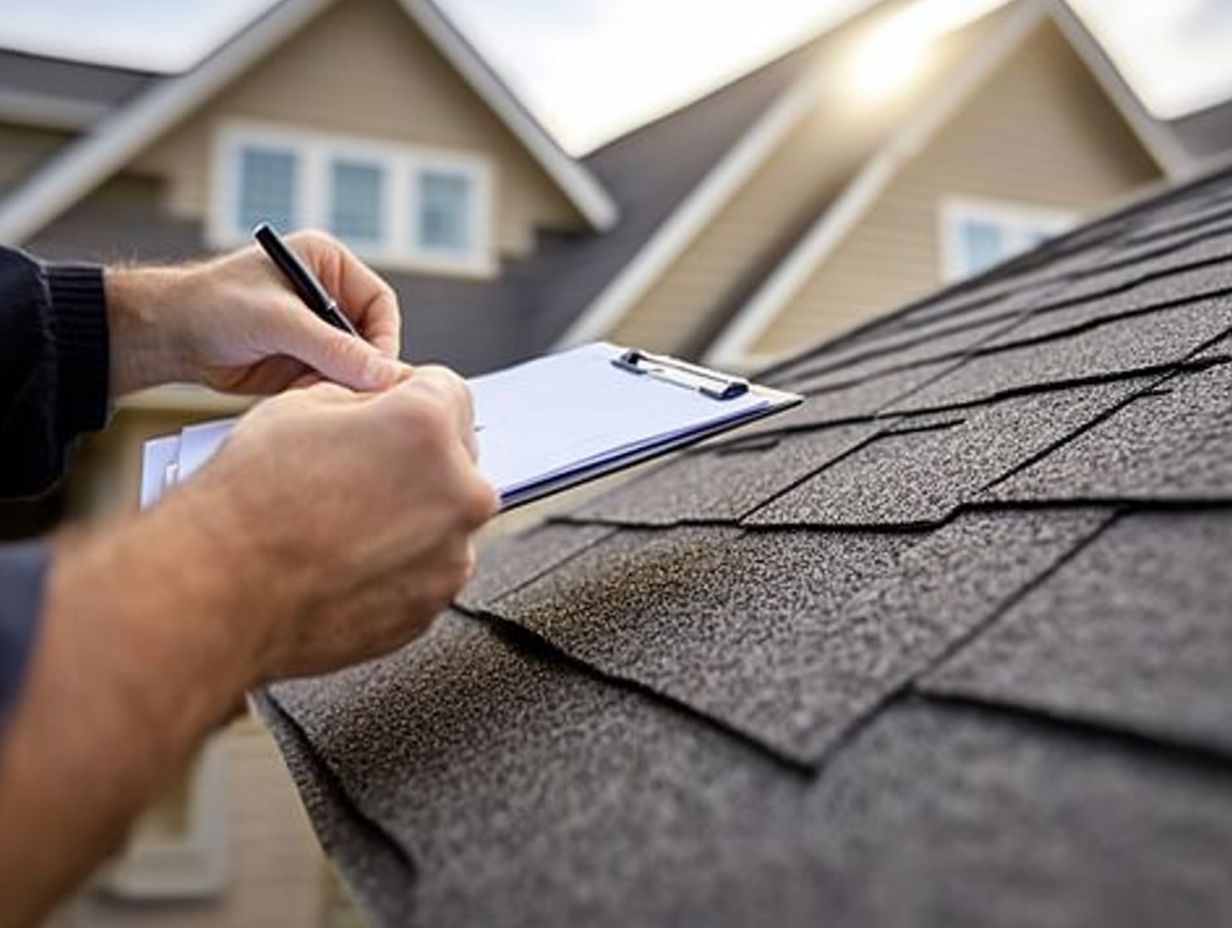
What are roof inspections and why are they important?
Roof inspections are detailed assessments of a roof’s condition by a professional. They help find potential issues that could lead to expensive repairs later, making it crucial to understand the importance of thermal imaging in inspections.
How often should roof inspections be done?
Roof inspections should occur at least once a year, ideally in the fall or spring. It’s also wise to have an inspection after severe weather events, such as heavy rain or hail, to catch any damage early.
Can I do a roof inspection myself?
While you can perform a basic visual inspection, it s best to have a professional conduct a thorough evaluation. They have the expertise to spot issues that may not be visible to an untrained eye.
What are some common issues that can be found during a roof inspection?
Common issues include leaks, damaged or missing shingles, clogged gutters, and signs of mold or rot. Addressing these problems promptly can prevent more serious issues down the line.
How much does a roof inspection cost?
The cost of a roof inspection varies based on your roof’s size and type, as well as your location. On average, expect to pay between $150 and $300. This is a small price to pay compared to potential repair costs if issues go unnoticed!
Are roof inspections necessary for new homes?
Absolutely! Roof inspections are still important for new homes. Even with a new roof, there could be issues with the installation or materials that might not be evident until an inspection is performed. It s always best to catch and fix problems early!

